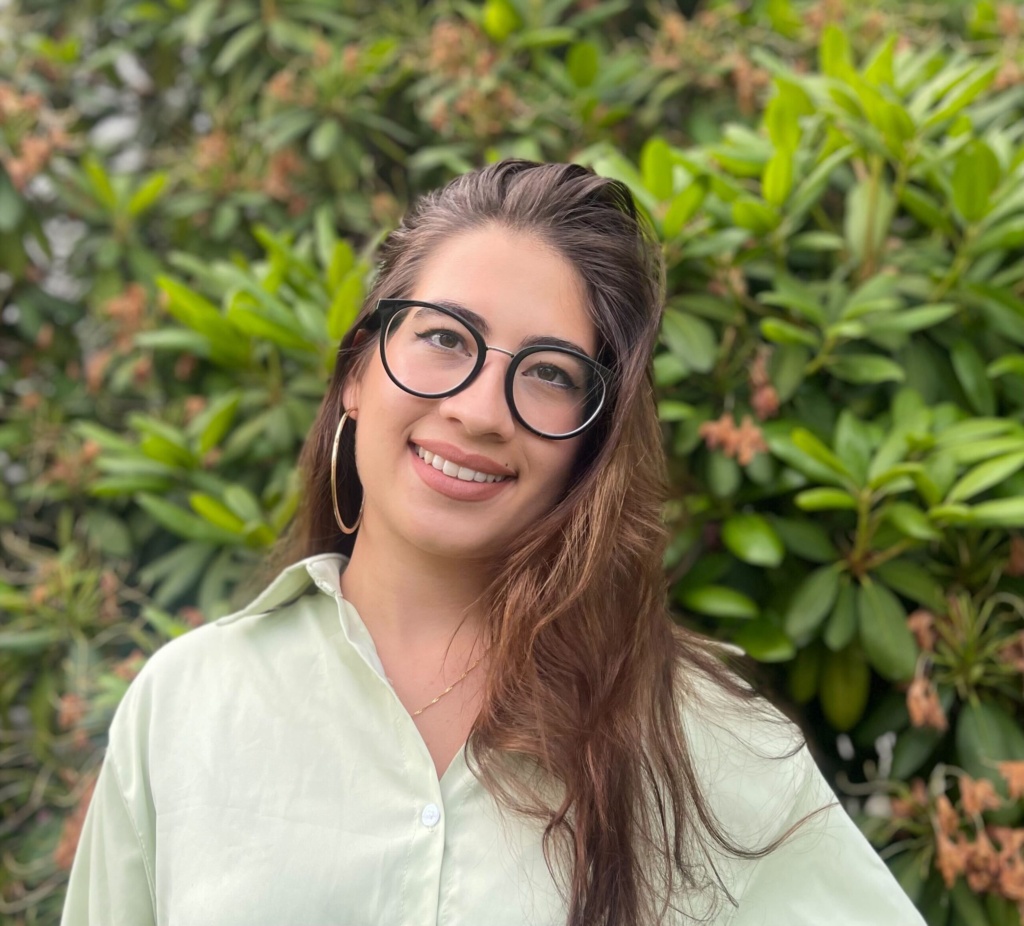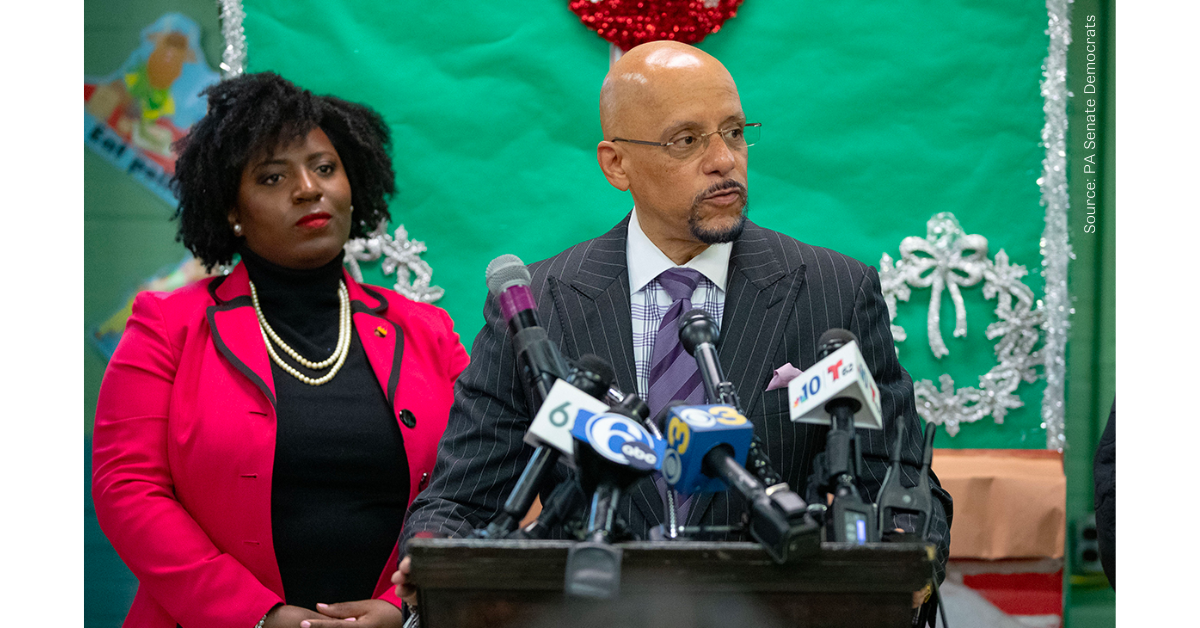By: Alesia Bani
KEY INSIGHTS:
- Philadelphia has allocated over $200 million to violence prevention this year to address soaring gun violence; there were over 2,000 shooting victims in the city in 2022.
- A portion of nearly $50 million in grant funding is going toward a gun detection software pilot on Philadelphia’s public transit system, but an AI ethicist has concerns.
- A city office dedicated to engaging Black men and boys in Philadelphia is creating a documentary to highlight existing community work making an impact around gun violence reduction and prevention.
The City of Philadelphia has recorded almost 4,000 shooting incidents and over 2,000 shooting victims so far this year, including fatal and non-fatal occurrences. The city began seeing a rise in gun violence in 2020 with the onset of COVID-19, and in an effort to address mounting concerns, the city is pouring money into new avenues and increasing funding for existing efforts.
On December 15th, State Sen. Vincent Hughes and State Rep. Joanna McClinton announced Philadelphia is receiving $49.9 million in grant funding which will be allocated to three agencies.
The Philadelphia Police Department was awarded $25 million to upgrade its crime lab, the Philadelphia District Attorney’s Office was awarded $20 million to expand digital surveillance capabilities and the remaining $4.9 million grant was awarded to the Southeastern Pennsylvania Transportation Authority (SEPTA) for a software pilot program to address gun violence on the public transit network.
Philadelphia has invested more than $200 million into gun violence prevention in 2022 alone and local communities, particularly communities of color, are waiting to see if it will pay off. A majority of people killed or injured in shootings in the city this year were Black, according to The Philadephia Inquirer.
Testing AI on SEPTA: outcome and ethics
The SEPTA Board authorized $63,000 at its Nov. 17 meeting to be awarded to ZeroEyes, an A.I.-based gun detection video analytics platform, for a six-month pilot beginning in January. The software will be installed on a selection of SEPTA’s live feed cameras in transit stairways, corridors and train platforms.
ZeroEyes identifies a gun brandished in plain sight, alerting personnel in the ZeroEyes dispatch center who will confirm the detection and notify law enforcement within three to five seconds, according to Andrew Busch, SEPTA’s director of media relations. The company claims it does not perform facial recognition or record images of people.
“As we’re seeing the numbers of shootings go up and homicides go up, we do think that there are additional steps needed to try to prevent or at least put us in the best possible position to respond to those incidents, which is what led to giving this a try,” Busch told The Plug. While there is no particular uptick of crime on public transit, Busch said incidents in the region “spill over” onto the system.
In reviewing the pilot’s efficacy and deciding whether to continue investing in the program, Busch said the board will evaluate whether the software is alerting SEPTA to situations it would otherwise not be aware of and whether the process is as quick as ZeroEyes claims.
In Philadelphia, some business owners believe police aren’t responding fast enough to crime.The owner of a gas station in North Philadelphia recently hired armed private security from the Pennsylvania State Agents to patrol his gas station. North Philadelphia is one of the areas with the highest rate of gun-related violence in the city.
In addition to the ZeroEyes pilot investment, part of the $4.9 million grant allocated to SEPTA will go toward increasing transit police presence and other efforts.
Alex Hanna, the director of research at the Distributed Artificial Intelligence Research Institute, told The Plug her concerns lie in the transparency of how ZeroEyes’ technology was developed and how it has the potential to be racially biased.
ZeroEyes was founded by a group of military veterans who trained the AI with “hundreds of thousands of proprietary images and videos,” but Hanna notes the platform does not share what training data is used i.e. how the AI learns what a drawn weapon looks like or whether an independent audit of the technology has been conducted.
“What does that training data look like? Is it going to involve primarily Black people with guns versus white people with guns?” Hanna said. “If you have Black and brown people holding those weapons, it’s going to over target those people. It doesn’t just target the weapon, it targets everything around and any kind of signal it can use.”
Hanna also worries about the human verification component of ZeroEyes’ operation center. The company claims its verification process prevents false positives.
“We don’t know who those people are. We don’t really know if they’ve had any kind of bias training, or if that training would be effective,” she said.
“Are those people there going to attribute something that may not be a weapon to a Black or brown person more likely than a white person?” Hanna said. “There’s just layers upon layers of ways that this could go sideways and there’s not a lot here that makes me confident about how this would actually work.”
ZeroEyes is already being used by the U.S. Department of Defense and some public school campuses, including the PennCrest School District in Pennsylvania, but SEPTA is the first major transit system to implement software of this nature.
Other U.S. cities are exploring the role technology plays in law enforcement, though not without criticism. In November, the Detroit City Council was sued over its approval of a $7 million expansion of comparable technology ShotSpotter, a controversial system that uses microphones around a city to try to detect gunshots to aid police.
City-funded documentary centering community groups
Another first-of-its-kind project around gun violence is coming out of the Mayor’s Office of Black Male Engagement (OBME). The office received a $340,000 city grant to create a documentary about how gun violence is impacting Black males in Philadelphia.
“This directly impacts Black men and boys far more than any demographic within the city,” Eric Westbrook, the director of the OBME, told The Plug. “We are bombarded with images on our timelines and feeds all day long — audio snippets, headlines of Black men and boys who are dying in the streets.”
The project, called A Hope that Lights the Way, will center the work of everyday people, community leaders and organizations that are making an impact, including Level Up Philly, which provides holistic mentoring and programming for teens and young adults from high-risk neighborhoods. The organization has over 400 people in its space weekly and is moving the needle on conflict resolution, Westbrook said.
“We wanted to begin to find out the work that is happening on the ground and find ways that we can elevate those stories and support the work that’s being done and that’s not always being promoted,” he said. The office is looking to residents to learn who is having the most impact in the city to subsequently support the expansion of that work.
The documentary will begin filming in January with a plan to wrap in July 2023.
Others are also looking to multimedia projects as a way to address the gun epidemic. Allen Iverson, a former Philadelphia 76ers player, is creating a new film called “Bad Things Happen in Philadelphia” around gun violence among Philly youth.
“Engagement work is so much more than a title. It’s a responsibility. It’s an effectiveness. It’s a sense of gaining the trust, and these folks have it,” Westbrook said, noting that partnering with the community is at the heart of the project and office’s mission.
Community leader says money is misdirected
Will Latif Little, who has served as a community activist, life coach and mentor in Philadelphia for 24 years, believes work centered around personal development can reduce gun violence. He said officials are looking at the crisis from a “surface perspective” rather than a “core perspective.”
“They keep putting all this money into the same systems, the same programs, but it’s just pacifying the issue, it’s not dealing with the issue,” Little told The Plug.
Little spent a decade in prison for a gun-related offense and points to unresolved trauma as the root of gun violence. “I know that firsthand because I was a kid on the street, I was the one committing violent acts, I was traumatized as a young kid growing up,” he said.
He believes addressing the problem from the core involves teaching emotional intelligence in prisons, schools and local communities. In 2009, Little started a youth mentoring program in three barbershops, which he refers to as “safe havens” for kids, but despite efforts, he never received city funding to support his work. The program eventually ended in 2017.
In 2021, Little turned to social media to reach the community. He hosts a daily Instagram Live class where hundreds of people tune in for two hours of vulnerability to share their stories and find community support.
The problem of gun violence runs deeper than holding a weapon — poverty, lack of access and systemic racism, which were further exacerbated during the pandemic, have contributed to the spike in gun violence that has plagued Philadelphia for decades. Beyond the documentary, the OBME has several other programs, events and a directory of resources to address these issues.
The office is also starting a gun violence group therapy initiative in partnership with the mental health organization Black Men Heal that will launch in 2023.
“We realize there are a number of services, opportunities, resources throughout the city that unfortunately sometimes Black men and boys are the last to find out about and so this office exists because of the historic marginalization,” Westbrook said.

Alesia Bani
Alesia Bani is a writer and journalist from Philadelphia and The Plug’s Innovation Reporter covering the Black tech ecosystem in Philadelphia. She previously worked for the Institutional Diversity office at her alma mater Temple University and has a background in reporting on identity, DEI and local government.
Contact: alesia@tpinsights.com




